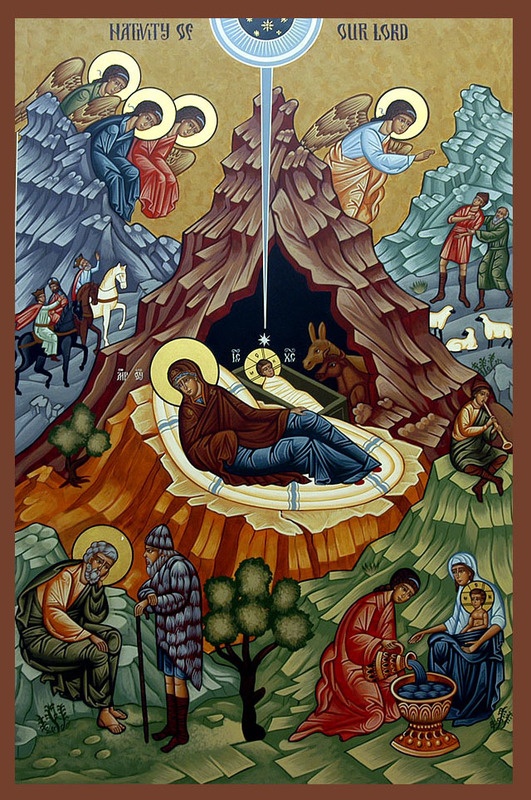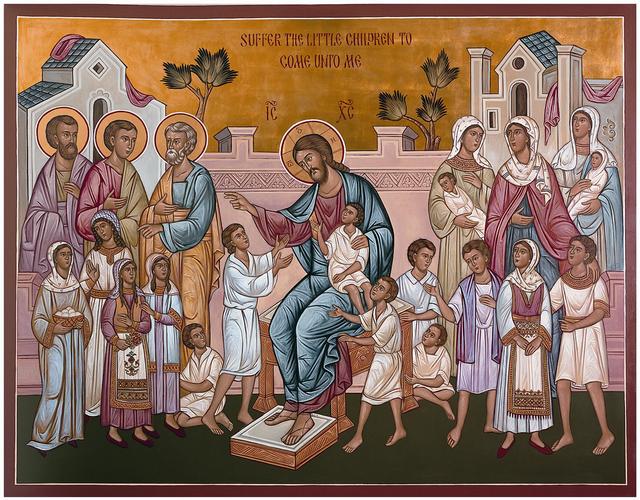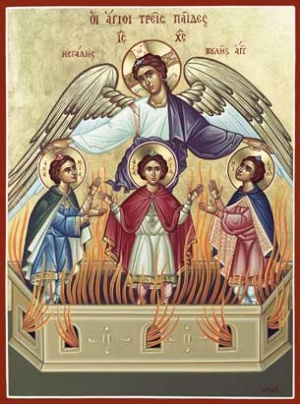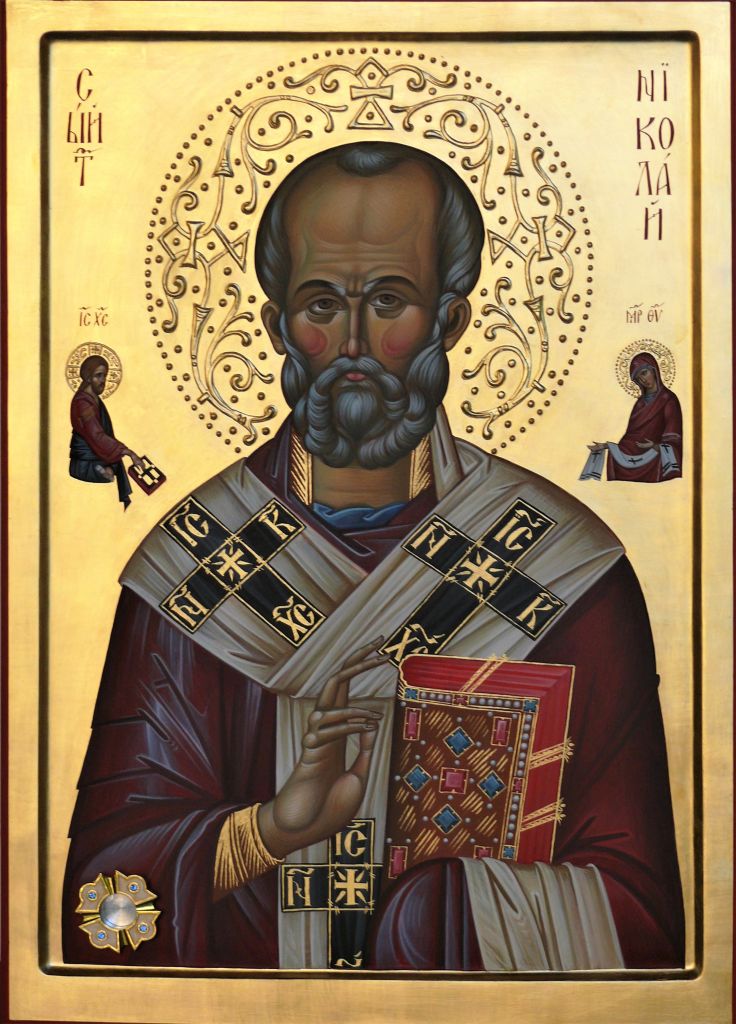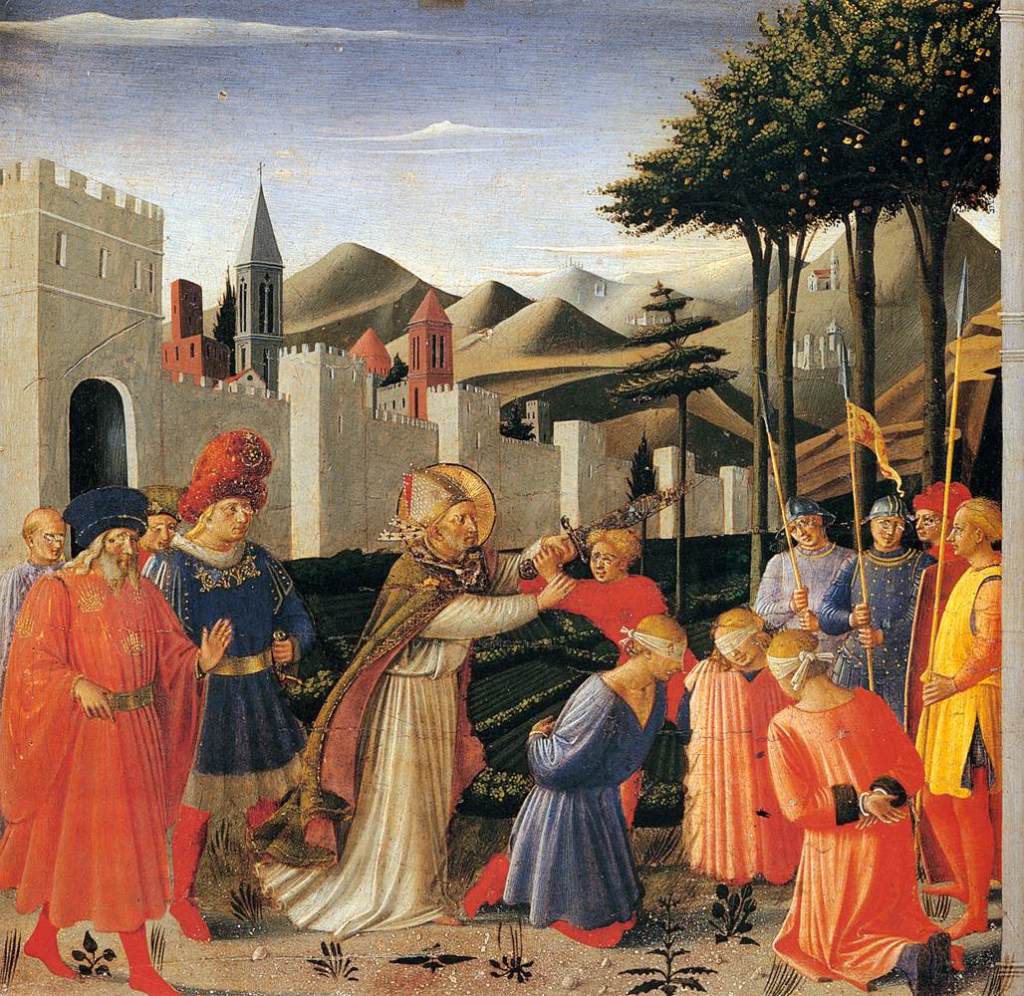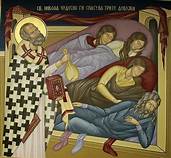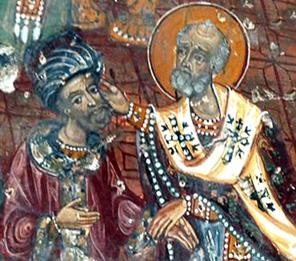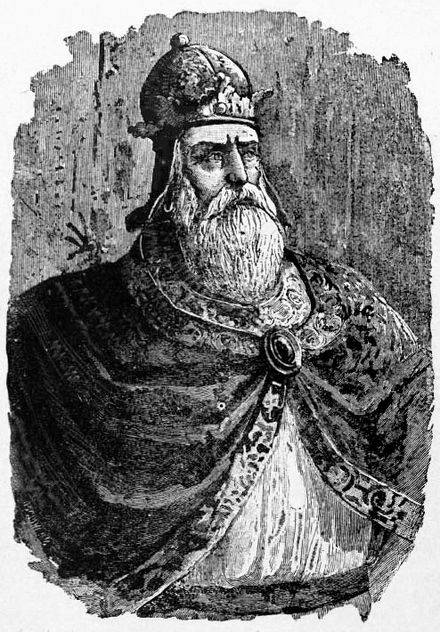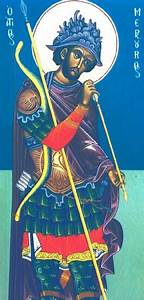I always wanted to join the convent life and consecrate myself in virginity to my Lord but my parents are old and aging and they desire I be protected. Still young and youthful, they have selected for me a handsome man who appears to be kind and loving. I know that God allows for us to seek him in either the life of one who is married or in the life of one who is a virgin. But in all things, he desires us to live a life of obedience. I want to fulfill the will of my parents who are always making peace so I shall accept the married life with obedience. Many fruits can come from marriage as God’s first commandment was “Be fruitful and multiply!” He said this to both man and woman as He created them in His image. What I am entering is into is a sacrament of participation in the creative act of God. I know that God shall bless this marriage.
Ferdinando is a very handsome man. He is a little bit older than I am. I am actually in the older years for marriage myself, age eighteen. Most girls I see are fourteen to sixteen when they are married but my hesitancy to enter this married state has left me entering into marriage at much older age than these girls. What a beautiful ceremony our wedding is! Placing my vows of marriage to this earthly man before my eternal Bridegroom and receiving the Eucharist in confirmation of the marriage and then visiting with relatives! But Ferdinando may be handsome and of well-to-do parents but I am quickly learning there is a darker side to him.
Ferdinando comes out quite physically and verbally abusive. I desire to fulfill the vows I made in marriage but I have no means to control what Ferdinando does. He is a drunkard and he roams around foul lots of people. He gambles too much and then complains that I have squandered the allowances on adornments for myself. I try not to fit myself into the greatest looking clothes. My desires are only for Christ, my Heavenly Bridegroom, and I know that in Him all things are made anew. With patience and longing for Him, I attend Mass faithfully and always light a candle for my beloved earthly husband, Ferdinando, hoping he will turn to the Lord and embrace gentleness. I cannot withstand the torments he enters into. His abuses don’t hurt me nearly as much as they hurt him.
Ferdinando complains about wanting a child to raise but it is not God’s desire for us to have children. “Ferdinando, you must learn to do God’s will before He can bless us with the fruits of children! Until then, He shall seal my womb shut. Sia fatta volunta di Dio! That is what we must learn to say, Ferdinando.” Many years attending Mass in this state of marriage to a man who is anything other than Christ. Many candles lit for him. Much prayers sent for him. Many tears wept for the pain he has brought upon himself. Finally, Ferdinando, as I am attending Mass one Sunday morning, says to me, “Rita! Where are you going?” “Ferdinando, I am going to Mass as I always do on Sunday mornings to be with Jesus Christ, my Heavenly Bridegroom!” “Rita, let me go with you and let us pray together.” Ferdinando’s heart is beginning to change. The first Mass I’ve been to with my earthly husband kneeling alongside of me. I send so many thanks to my Eternal Bridegroom for the work He has accomplished!
Ferdinando begins to understand that he must treat me as Christ sacrificed Himself for the Church. He indeed continues to do that. And our first child is born! A son given the name Giovanni at the baptismal font. And a second wonderful boy too! He is given the name Paulo at the baptismal font. St. John Baptist and St. Paul, protect my children from sin! This is their mother’s cry! How wonderful it is to bear children to fill Heaven with! I have not denied Heaven this reward and I shall not. Ferdinando shall enter into Heaven as long as I continually pray for my loving earthly husband. How the Church has the might to turn a savage beast into a delightful lamb!
My husband has acquired quite a few enemies here in Rocca Porrena over the years from his past misdeeds and though I know that he has converted, I am reminded that we are all still weak sinners. I tell him to avoid those people who used to lead him into sin but sometimes he lapses. It’s been less and less frequent. However, I often worry when he takes too long to get home. As I prepare dinner tonight, I notice that he has been unusually long in getting home. Usually he arrives just before the sun sets, but the sun has not only set, the moon is up in the sky. One of my dear lady friends runs up to me, wringing her hands in the air. “Rita! O Rita! There’s been a catastrophe! Ferdinando! He has been stabbed! He’s dead! We tried to minister the last rites but he was dead before the priest got there!” No! My earthly husband Ferdinando is dead!
I continue to hear all sorts of rumors. I knew that he should not have been with those people, but I hear that he instigated a fight and that he was stabbed to death when his rival took out the blade and plunged it through his chest. What I am most worried about is that he never received the viaticum. Desperately, I pray for his soul and light candles. “O God, enter not into judgment with thy servant Ferdinando, for in thy sight no one will be justified.” Purgation is brutal though a mortal sin will lead to eternal damnation. I pray for Ferdinando that he be brought through Purgation to eternal glory. May God receive my dear earthly husband’s soul into His bosom.
But I fear for my son’s most of all. I know that they have a lot of energy. I have told them that their mother forgives their father’s assassins, just as Our Lady forgave those who put Her Son to death on a Cross. They are desiring this path of vengeance more and more. “Giovanni and Paulo, you must remember that the path to Heaven is forgiveness!” Praying and pleading for my husband’s soul and for my sons to forgive those who trespass against them, I ask God to spare them from being led into sin. As a plague breaks out, my sons have fallen ill with it. Somehow, I have been unaffected by it. Watching them suffer is heartbreaking, but I have called for a priest. Seeing them on their deathbeds, though youths, I reflect on the fact that they were gifts from God and should be surrendered back to Him. And nothing pleases me more than to see the priest visiting both of them, giving them the viaticum. I am affirmed that they have both reposed, forgiving their father’s assassins. Widowed, I shall not remarry, for I have always wanted to enter into the convent. That is the way I shall end my own earthly life.
***
This story is based on the Life of St. Rita who desired to enter into a convent at an early age but her parents, who were old, wished for her protection in a state of marriage. She was married to an unfortunately unruly man named Ferdinando Paolo who was verbally and physically abusive. But she continued to pray for his conversion. He became sober, a follower of Christ, and the two were blessed with sons Giovanni and Paulo. Ferdinando though, having enemies from his early days, was murdered. When the news reached St. Rita, she would not cease in prayer for him until she was certain he would enter into Heavenly glory. Fearing her sons would desire vengeance, she prayed that they would be led away from sin. When a plague hit the city, they fell victim to it, and having reposed before they considered this sin, entered into Heavenly glory. She fulfilled the rest of her days as an Augustinian nun. The nuns would not accept her at first as they had a policy against receiving widows, but after a miraculous sign was shown to the nuns, she was allowed to enter the Abbey. Her Feast Day is May 22 in the Latin Church. St. Rita, pray for us!
